כרתו יערה נאם־יהוה כי לא יחקר כי רבו מארבה ואין להם מספר׃
They cut down her forest," says Adonai, "for they cannot be numbered; yes, there are more of them than locusts, far too many to count.
(Jer 46:23)
The haftara this week takes us again to the place where HaShem uses Nebuchadnezzar as His “servant” to punish Egypt who has been an unreliable partner and even a snare to Israel. The wording of Jeremiah’s prophecy alludes to the plagues of Egypt as reported in this and last week’s parasha.
In parasha Bo this week:
Adonai said to Moshe, "Go (should be: 'come' to ...(explain))to Pharaoh, for I have made him and his servants hardhearted, so that I can demonstrate these signs of mine among them, (Exo 10:1)
The translated word “Go” in the Hebrew text is the word “Bo/בא”, which actually means “come.” It may not seem important, but it is significant of HaShem’s position at the time of the oracle.
When you tell someone to “go”, you are staying somewhere telling them to go away from you. But when you tell someone to “come” that means you are away and you tell them to come to you. In this case, the fact that HaShem tells Moshe to “come” to Egypt means that HaShem is in Egypt, just as is implied:
Adonai said, "I have seen how my people are being oppressed in Egypt and heard their cry for release from their slavemasters, because I know their pain. I have come down to rescue them from the Egyptians and to bring them up out of that country to a good and spacious land, a land flowing with milk and honey, the place of the Kena`ani, Hitti, Emori, P'rizi, Hivi and Y'vusi. Yes, the cry of the people of Isra'el has come to me, and I have seen how terribly the Egyptians oppress them. (Exo 3:7-9 CJB)
From this wording, we know that in their afflictions, the Children of Israel were not alone. HaShem was right there with them as He always is at any time we go through troubles and affliction. We must always remember that he never promised to keep us from troubles and afflictions, but He promised to be with us through our troubles and afflictions.
ON TO THE HAFTARAH
The haftara this week connects with the parasha because it also starts with the same Hebrew verb “bo/בא”, but this time in the infinitive. This time, it is not Moshe who is asked to come to punish Egypt through plagues, but Nebuchadnezzar, the Emperor of the Babylonian Empire.
This word Adonai spoke to Yirmeyahu the prophet concerning how N'vukhadretzar king of Bavel would come and attack the land of Egypt: (Jer 46:13)
יג הַדָּבָר אֲשֶׁר דִּבֶּר יְהוָה, אֶל-יִרְמְיָהוּ הַנָּבִיא--לָבוֹא, נְבוּכַדְרֶאצַּר מֶלֶךְ בָּבֶל, לְהַכּוֹת, אֶת-אֶרֶץ מִצְרָיִם.
WHAT DO WE LEARN FROM THIS
The children of Israel were only supposed to be in Egypt for the time of the famine. They were not supposed to settle there forever. At the time when Jacob died, about 230 years before, they were supposed to leave and go back home to Cana’an. But life was so comfortable in Egypt that they did not want to leave. But as it is said, “Chains of gold are still chains!” They relied on Egypt for protection and prosperity. When we do that, we commit blasphemy because we assign man to the job of protecting us, a job reserved for God only. So in the days of Moshe, the affliction of the children of Israel by Egypt was really of their own doing due to their lack of faith in HaShem.
The same happened in the days of Jeremiah. Under HaShem’s command to punish Israel, Nebuchadnezzar conquered Judea and exiled most of its people to Babylon. This was a time when the prophetic word thrived. It was a time when people learned to rely on Torah study in order to keep their connection with HaShem. Daniel was in the Capital City, Ezekiel in the province, and Jeremiah remained in Jerusalem with a remnant.
This Jerusalem remnant wanted to revolt, and they did so by first killing Gedaliah, the Babylonian appointed governor over Judea. Then relying on Egypt’s military strength, they wanted to go and find refuge there, something forbidden in the Torah as it says that,
Adonai told you never to go back that way again. (Deu 17:16 CJB)
Before going, they asked Jeremiah for his advice. When he told them that HaShem said not to do that but to stay put in Jerusalem and wait until the exile is over (after 70 years), they accused him of lying and kidnapped him with them to Egypt. When Egypt heard of the vast army Nebuchadnezzar was raising against Egypt in order to teach them and the children of Israel a lesson, Egypt turned its back and ended up becoming a staff of straw, unwilling to support Israel.
Sad to say, this is often the way HaShem’s children act. Unable to trust God, they took matters into their owns hands and persecuted the prophets who tried to tell them otherwise. Their redemption became then an affair of saving them from themselves as well as punishing the powers on whom they relied on.
Sad to say, Solomon was right in saying:
What has been is what will be, what has been done is what will be done, and there is nothing new under the sun. Is there something of which it is said, "See, this is new"? It existed already in the ages before us. No one remembers the people of long ago; and those to come will not be remembered by those who come after them. (Ecc 1:9-11 CJB)
Are we seeing the same thing in our days?
Another remarkable element of this prophecy is the plagues of Egypt, not only find similitude in the oracle Jeremiah received for Israel returning to Egypt, but also an echo in the Book of Revelation.
This should make us seriously think about our position as believers. We should seriously ask ourselves the question, “Just like with the children of Israel coming out of an overdue stay in Egypt in the days of Moshe, and them having gone back to Egypt in the days of Jeremiah, does our end of Days need for redemption come as a result of our own disobedience in relying on the world instead of HaShem?” Just something to think about.
NOW, TO THE HAFTARAH
As usual, the text of the Haftarah does not stand on its own. To understand it, one must start at Jeremiah 40, the summary of which you can read in my preceding section.
The children of Israel are in Tachpanches with kidnapped Jeremiah when Jeremiah receives an oracle:
This word Adonai spoke to Yirmeyahu the prophet concerning how N'vukhadretzar king of Bavel would come and attack the land of Egypt: "Proclaim in Egypt, announce in Migdol, announce in Nof and Tachpanches; say: 'Take your stand! Get ready! For all around you the sword is destroying. (Jer 46:13- 14)
War is coming, and it is coming right to the place where the children of Israel are camped. They may have remembered then the words of the Torah forbidding them to return to Egypt, and the advice of Jeremiah, but it was now too late. Jeremiah probably sent emissaries to warn people with the Word of Adonai.
Why has your strong one been overthrown?
He failed to stand because Adonai pushed him down. (Jer 46:15)
Or, “Why did these strongholds on which you trusted fail?” Because God did it!” An allusion to Exodus 12:12 and the punishments against Egypt.
Then, referring to 2 Kings 24 when Josiah needed the help of the same Pharaoh against Babylon, by the Spirit of HaShem, Jeremiah reminds them of “big noise but empty promises Pharaoh.” Anticipating the help of Pharaoh, Josiah had laid a siege but Pharaoh reneged and never came.
He caused many to trip; yes, they fell all over each other.' " Then they said, "Let's get up, let's return to our own people, back to the land where we were born, away from the sword that destroys."They cried there, "Pharaoh king of Egypt makes noise, but he lets the right time [for action] slip by." (Jer 46:16-17)
Then, speaking of the strength wherewith Nebuchadnezzar will come, probably unbeknownst to him, Jeremiah makes a proclamation that takes us to the Ends of Days:
"As I live," says the king, whose name is Adonai-Tzva'ot, "when he comes, he will be [as mighty] as Tavor among the mountains, as Karmel next to the sea. (Jer 46:18)
Tavor and Karmel are in the Valley of Jezreel, commonly known as the Valley of Armageddon. In Emperor Nebuchadnezzar, Jeremiah sees the big battle at the End of Days as described in Ezekiel 38 and 39, as well as Revelation 16:16.
Then, drawing imagery from the Exodus events, Jeremiah gives a warning to Egypt. First the flies:
"Daughter living in Egypt, prepare what you need for exile; for Nof will become a ruin, laid waste, without inhabitant. Egypt is a beautiful female calf; but a horsefly from the north has come to attack her. (Jer 46: 19-20)
HaShem fought them by the sea:
Her mercenaries too, that she had with her, were like well-fed calves in a stable; but they too have withdrawn in retreat, they all ran away without standing their ground. For their day of disaster has come over them, the time for them to be punished. (Jer 46:21)
The locusts coming as lumbermen chopping trees:
Egypt hisses like a snake, as the enemy's army marches ahead, attacking her with their axes like lumbermen chopping trees.They cut down her forest," says Adonai, "for they cannot be numbered; yes, there are more of them than locusts far too many to count. (Jer 46:22-23)
Every one of the plagues in the Exodus attacked a god of Egypt:
The daughter of Egypt is put to shame, handed over to the people from the north."Adonai-Tzva'ot, the God of Isra'el, says: "I will punish Amon from No, Pharaoh, and Egypt with her gods and kings -- that is, Pharaoh and those who trust in him; (Jer 46:19-24-25)
Continuing with our midrash application to the end of days, which of the gods of this world will be targeted by the plagues of the end? Mammon, the god of money and materialism? The god of fame and self-aggrandizement as projected by entertainment media? The god of …
Egypt will be hit hard, but as we have seen in the previous haftara, it will not be lost forever. It will live again but never to its former glory.
I will hand them over to those who seek their lives, to N'vukhadretzar king of Bavel and to his servants. But afterwards, Egypt will be inhabited, as in the past," says Adonai. (Jer 46:26)
Again, Jeremiah makes a cosmic jump into the future redemption of Israel:
"Yet don't be afraid, Ya`akov my servant; don't be distressed, Isra'el. For I will save you from faraway places, and your offspring from the lands where they are held captive. Ya`akov will return and be at peace, quiet, with no one to make him afraid. (Jer 46:27)
Then a final prophecy for Israel:
Don't be afraid, Ya`akov my servant," says Adonai, "for I am with you. I will finish off all the nations where I have scattered you. However, you I will not finish off, I will discipline you as you deserve, but not completely destroy you." (Jer 46:28)
Indeed, no matter what happens to His people, we need to remember that:
God's free gifts and his calling are irrevocable. (Rom 11:29 CJB)
A WORD FROM THE RABBI
In this parasha, I challenge us to ask ourselves some serious questions, the same questions Israel probably failed to ask itself in both events studied above.
Let us remember that...
These things took place as prefigurative historical events, warning us not to set our hearts on evil things as they did. Don't be idolaters, as some of them were -- as the Tanakh puts it, "The people sat down to eat and drink, then got up to indulge in revelry." And let us not engage in sexual immorality, as some of them did, with the consequence that 23,000 died in a single day. And let us not put the Messiah to the test, as some of them did, and were destroyed by snakes. And don't grumble, as some of them did, and were destroyed by the Destroying Angel. These things happened to them as prefigurative historical events, and they were written down as a warning to us who are living in the acharit-hayamim. Therefore, let anyone who thinks he is standing up be careful not to fall!
(1Co 10:6-12 CJB)
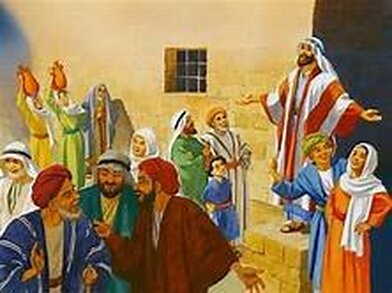
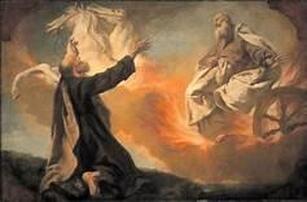
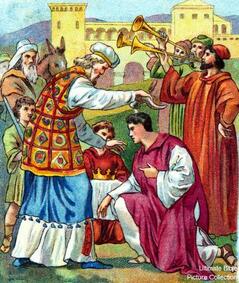
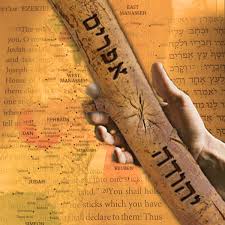
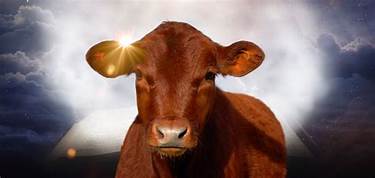
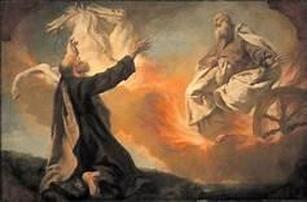
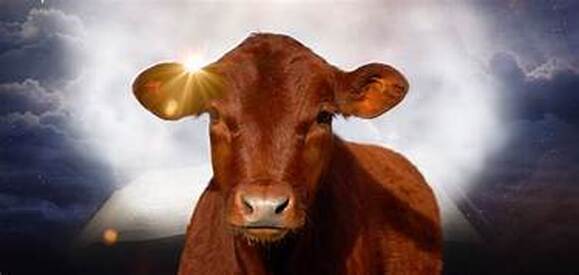
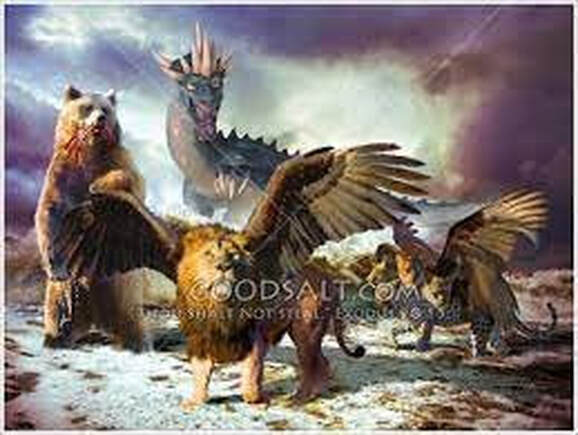
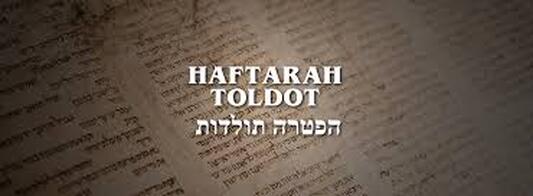

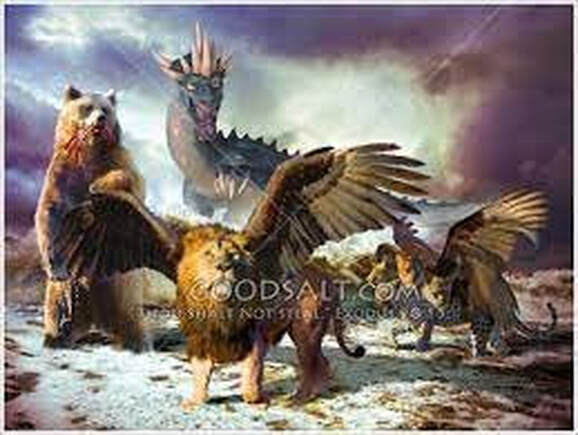
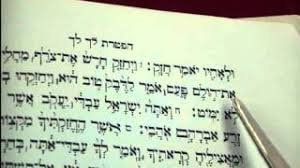
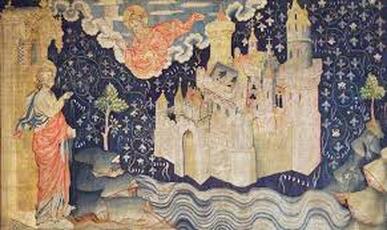
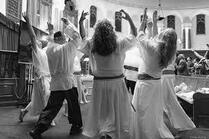
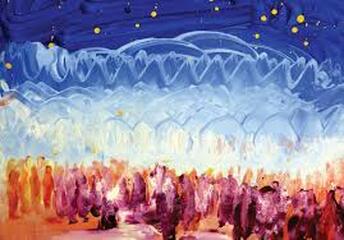
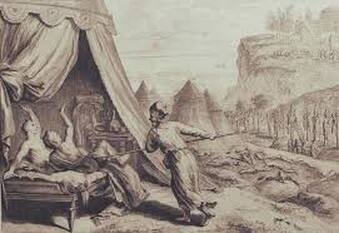
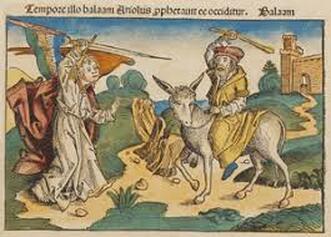
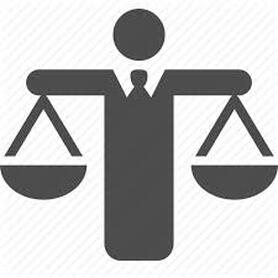
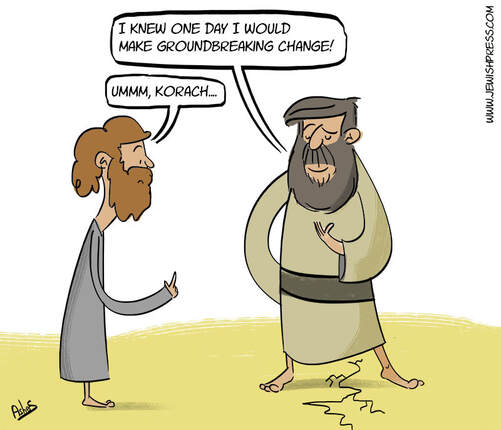


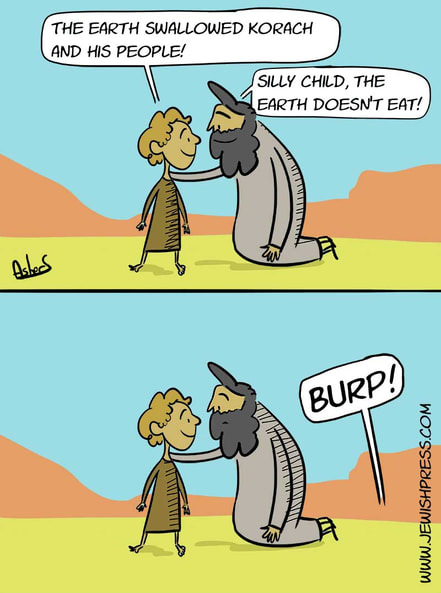
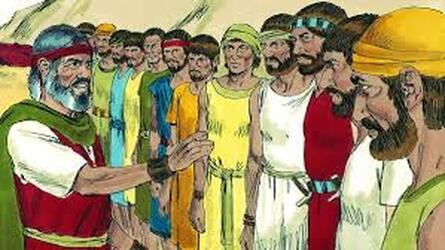
 RSS Feed
RSS Feed